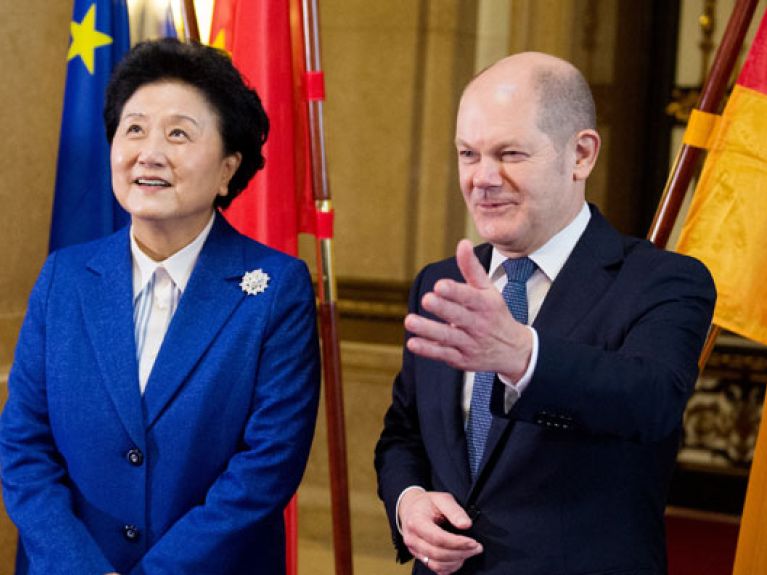The Hamburg Summit: China meets Europe
The Hamburg Summit will see discussion on the major issues between China and Europe. Three questions for Dr. Margot Schüller, Senior Research Fellow at the GIGA Institute of Asian Studies and an acknowledged expert on China.

Dr. Schüller, you are a moderator at the “Hamburg Summit”. In your opinion what are the most urgent issues between China and Europe that need addressing?
The most relevant issue is the recognition of China as a market economy by the EU. The fact that in the space of just 15 years China has become so internationally competitive and now represents such a challenge for the EU member states was unforeseeable when the country joined the World Trade Organization (WTO) in late 2001. Evidently this amount of time was not enough to make the necessary structural adjustments in response to the cost pressure in the EU being exerted by China. At the moment the high overcapacity of steel in China and Chinese steel exports at dumping prices are the main problems. Without sufficient trade-related industrial property rights against dumping, after 11 December 2016 European companies would not be protected against rapid increases in exports of goods at prices below manufacturers’ prices. Both sides will have to make a compromise if the basically good trade relations are not to be put into question. This, for example, could take the form of basic recognition by the EU of market economy status, while at the same time adapted trade-related industrial property rights could be used to tackle overcapacities and price dumping.
Further issues are the elimination of restrictions on access to the Chinese market for European investors and the equal treatment of foreign companies after they have set up in China. The lack of protection of intellectual property rights remains a challenge for foreign companies, although there has definitely been progress as far as implementation of the existing legal framework is concerned.
China is one of Germany’s most important business partners. How are the relations changing, also given the recent visit to China by Federal Minister for Economic Affairs Gabriel, during which he openly criticized the market access for German companies?
The sort of open criticism of the framework conditions for foreign companies that Gabriel made is unusual. I don’t think, though, that it will be detrimental to relations with China, nor however that his criticism is going to change the situation in the short term. On the other hand it can be seen as part of the negotiating game with regard to the EU-China Investment Agreement. Here the EU is banking on greater reciprocity as regards access to the Chinese market by European companies in return for a liberal market access policy in the EU for Chinese investors. The fact that the takeovers of the companies Aixtron and Osram by Chinese buyers are being scrutinized again can likewise be seen in this context.
The Bertelsmann Foundation recently published its “China 2030” study, which has six different scenarios. Which do you think is the most probable?
I’m assuming that the “Chinese Dream” scenario, which envisages the introduction of ambitious economic reforms by the Chinese government, will for the most part be reality by 2030. But in another 14 years the Chinese market economy will still not be identical to Western market economies, as examples such as Japan and South Korea have demonstrated. Because in a society standards and values change the slowest, I am not assuming that we will see the Western-style “liberal values system” assumed in this scenario. Yet with more innovation-driven development envisaged there also has to be more individual freedom and an opportunity for creative development. That will change China most of all.
The Hamburg Summit: China meets Europe on 23 and 24 November 2016

